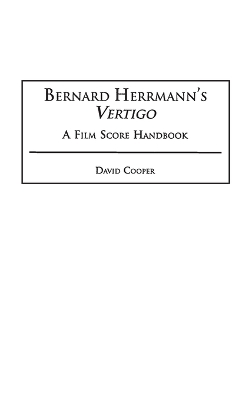Film Score Guides
1 total work
This in-depth musicological and critical study examines how Bernard Herrmann's score for Alfred Hitchcock's Vertigo plays a crucial role in the articulation and development of the film's narrative and how it affects readings of the film. Herrmann's collaboration with Hitchcock spanned eleven years and nine films, and Herrmann's film score for Vertigo is widely regarded as being one of his finest. Cooper considers the development of Herrmann's career up to 1958, providing a detailed discussion of his musical style. The explicit information about the structure of Herrmann's music is based on a study of Herrmann's autograph score.
Cooper examines not only the context of the film's production, but also its reception and critical readings of the film. In addition, this study explores how the effects track co-operates with Herrmann's non-diegetic and diegetic score and concludes with a detailed musicological study. The author advances a new theory, in his discussion of signification, about the establishment of meaning in film music through association with images on the screen. This sophisticated musicological approach will appeal to film music and film communication scholars.
Cooper examines not only the context of the film's production, but also its reception and critical readings of the film. In addition, this study explores how the effects track co-operates with Herrmann's non-diegetic and diegetic score and concludes with a detailed musicological study. The author advances a new theory, in his discussion of signification, about the establishment of meaning in film music through association with images on the screen. This sophisticated musicological approach will appeal to film music and film communication scholars.
